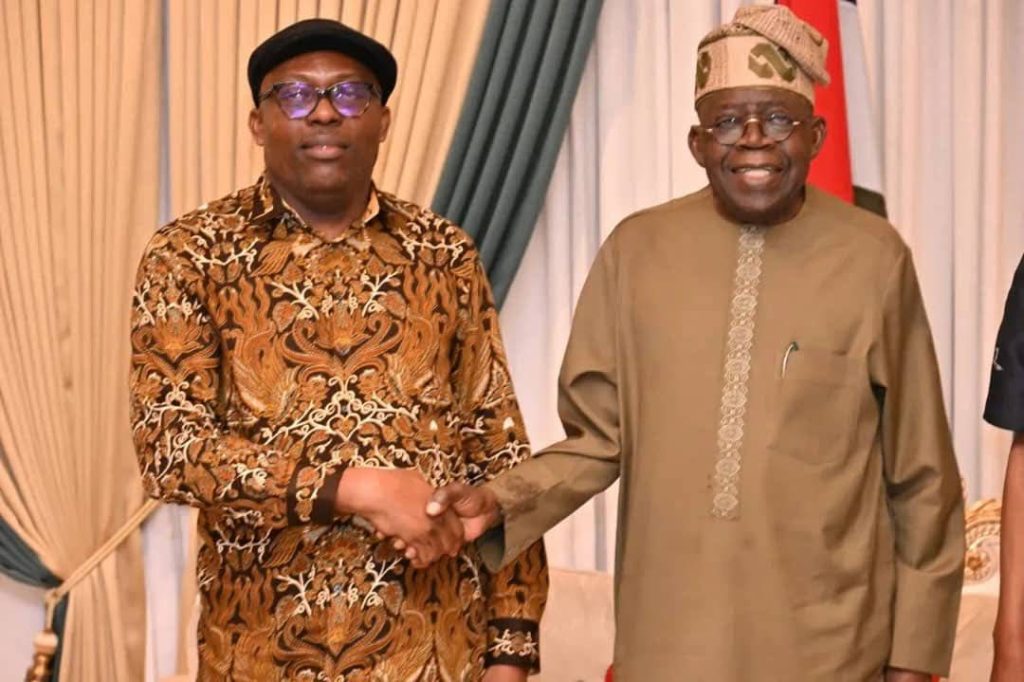President Bola Ahmed Tinubu on Wednesday declared an end to six months of emergency rule in Rivers State, restoring democratic governance to one of Nigeria’s most politically volatile regions. The announcement, effective from midnight, allows Governor Siminalayi Fubara, Deputy Governor Ngozi Nma Odu, Speaker Martins Amaewhule, and members of the State House of Assembly to resume their duties on 18 September 2025.
Tinubu said the suspension of democratic structures imposed on 18 March had been a constitutional necessity to prevent “a total collapse of governance” after a bitter power struggle between Governor Fubara and his predecessor, Minister Nyesom Wike, paralysed the state. “It would have been a colossal failure on my part as President not to have made that proclamation,” he said.
The President cited intelligence indicating “a groundswell of a new spirit of understanding, a robust readiness, and potent enthusiasm” among Rivers stakeholders for peace and cooperation. “I do not see why the state of emergency should exist a day longer than the six months I pronounced,” Tinubu added, urging Nigerian governors and assemblies to uphold peace and order as prerequisites for delivering democracy’s dividends.
Read Also:
Tinubu lifts state of emergency in Rivers
Less than 24hrs to go: Rivers State awaits Tinubu’s decision on emergency rule
Dogara hails Tinubu’s tax reforms as most ambitious in decades
Tinubu reminded governors and lawmakers nationwide that stability is critical to national progress. “It is only in an atmosphere of peace, order, and good government that we can deliver the dividends of democracy to our people,” he said. “Let this realisation drive your actions at all times.”
Protests and Calm Ahead of Handover
Hours before Tinubu’s announcement, tensions briefly flared at Port Harcourt’s Government House as aides to departing Sole Administrator Vice Admiral Ibok-Etteh Ibas staged a protest over alleged unpaid allowances. Videos of the demonstration quickly circulated online, prompting speculation about unrest within the government compound.
However, Ibas’ media adviser, Hector Igbikioiwubo, dismissed the protest as minor and insisted the atmosphere remained calm. “There is no crisis here,” he told reporters. “I am not aware of any such videos. Government House is peaceful, and the handover preparations are on course.”
The deputy governor returned to Port Harcourt earlier in the day, while residents awaited both Fubara’s return from abroad and Ibas’ meeting with Tinubu in Abuja to finalise the handover.
Roots of the Crisis
The Rivers political crisis traces back to 5 October 2024, when controversial local government elections, later declared invalid, deepened long-standing rifts between Fubara and a faction of the State Assembly loyal to Speaker Amaewhule. By March 2025, Rivers’ governance had ground to a halt: the Assembly was split between four pro-Fubara lawmakers and 27 opponents, oil pipelines were vandalised, and the governor could not present a budget to access funds.
Two pipeline explosions on 17 and 18 March heightened fears of economic sabotage. Even the Supreme Court noted in a ruling that “there was no government in Rivers State.” Tinubu and other national figures attempted mediation, but entrenched positions thwarted their efforts. The President’s emergency declaration quelled tensions and facilitated swift repairs to critical oil infrastructure, averting disruptions to Nigeria’s oil-dependent economy.
Voices From Rivers State
Many residents greeted the lifting of emergency rule with relief but tempered optimism. “We just want to get back to normal life,” said Jacob Nwokocha, a teacher in Obio/Akpor. “The past six months felt like Rivers was on pause—projects stalled, salaries delayed, and people were worried about violence returning.”
Others credited the intervention for restoring order. Ugur Okar, a resident of Eleme, said: “At least for the quietness and calmness, Ibas did well. Boys no longer destroyed people’s property, and you could walk freely. But nothing really improved, no roads fixed, no development. We hope Governor Fubara will pick up from where things stopped.”
Analysts also weighed in on Tinubu’s political calculus. Dr. Olumide Balogun, a former lecturer at the University of Ibadan, said the President’s swift action prevented a crisis that could have destabilised oil production and weakened investor confidence. “Tinubu has gained political capital here,” Balogun said. “Rivers has traditionally been an opposition stronghold, but his handling of this situation has shifted allegiances. Yet he must ensure that emergency powers are not seen as a first resort in future conflicts.”
Winners and Political Implications
Tinubu emerges as the principal winner. Beyond stabilising Rivers, the emergency rule allowed his party to make gains in a state once dominated by the opposition Peoples Democratic Party. Several loyalists defected to the ruling All Progressives Congress ahead of the contested local elections.
However, civil society groups remain critical. Over 40 legal challenges were filed against the emergency proclamation, with activists warning it risked normalising extraordinary measures that undermine democratic norms. Mr Johnon, director of the UK Global Democracy Alliance, said: “Emergency rule should never become a convenient tool for political bargaining. Rivers needs reconciliation, not strong-arm tactics.”
For Rivers residents, the end of emergency rule offers a chance to rebuild trust in democratic institutions. Whether the fragile peace endures will depend on the willingness of Fubara, the Assembly, and local stakeholders to move beyond months of rivalry and deliver the governance their state has been missing.



